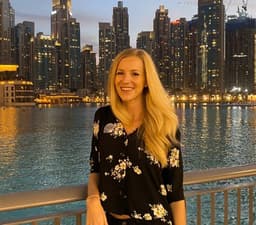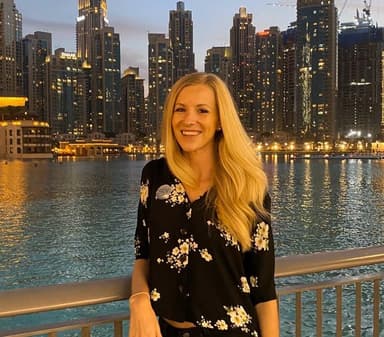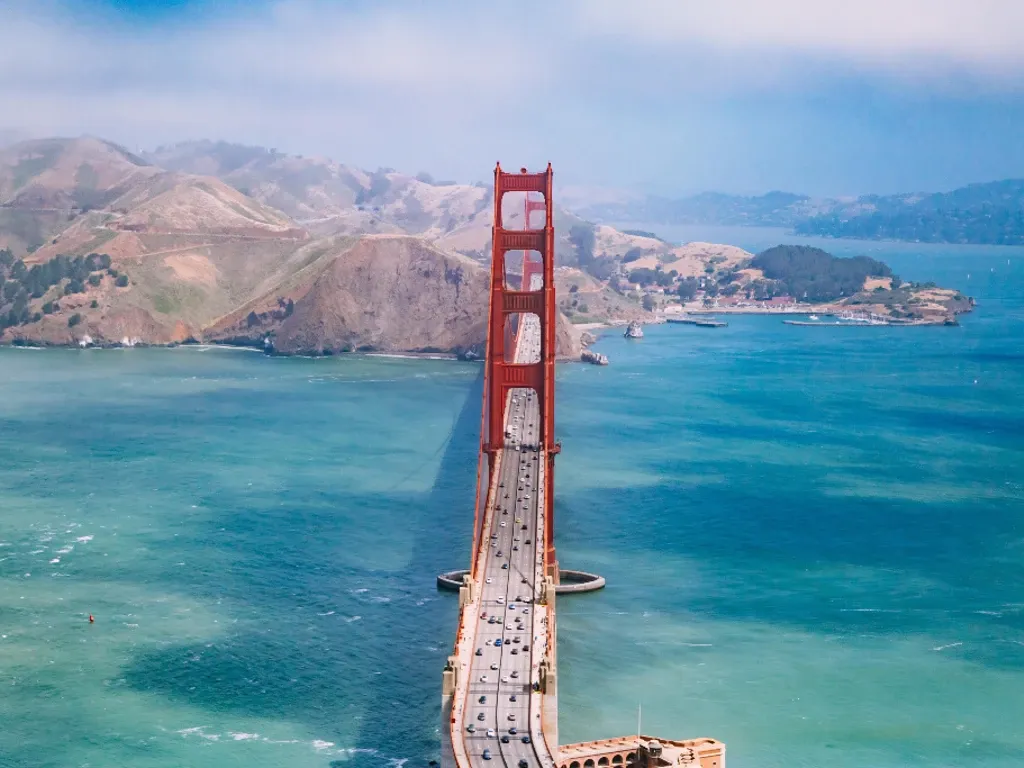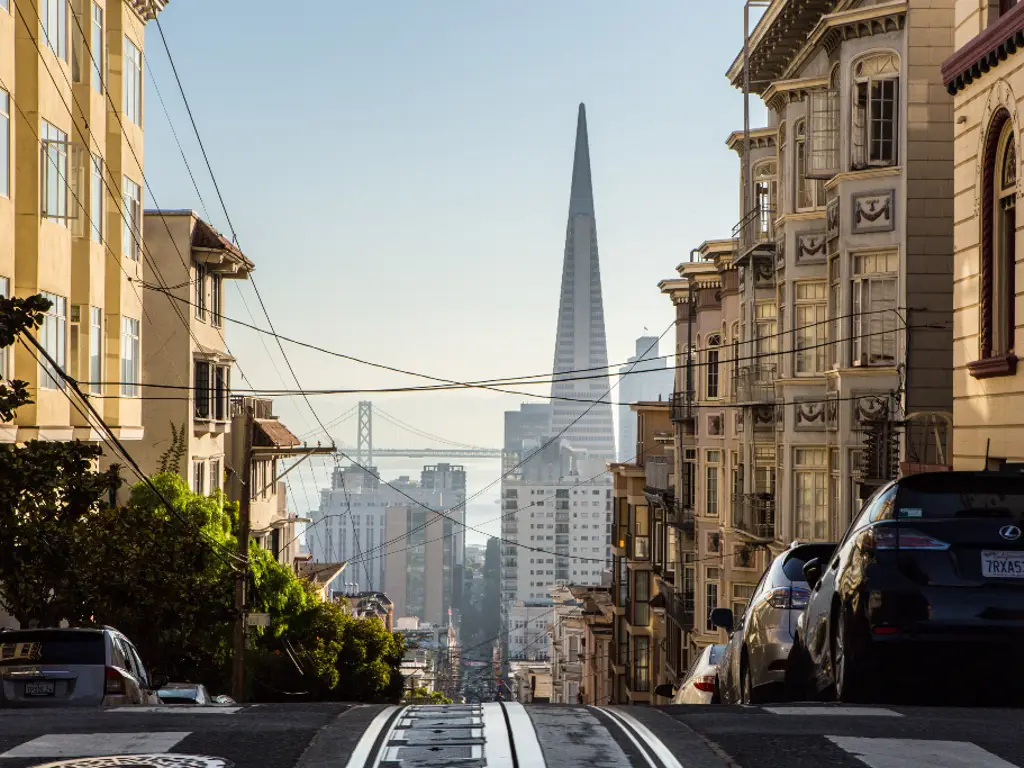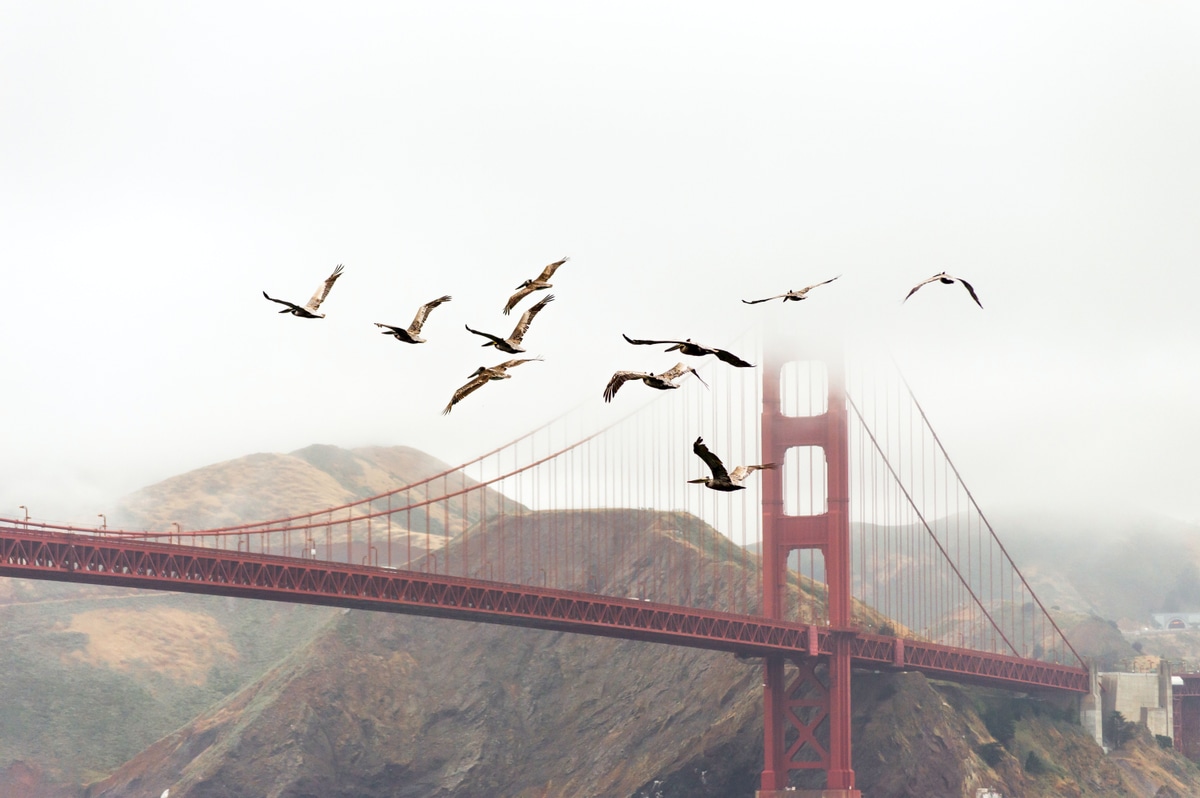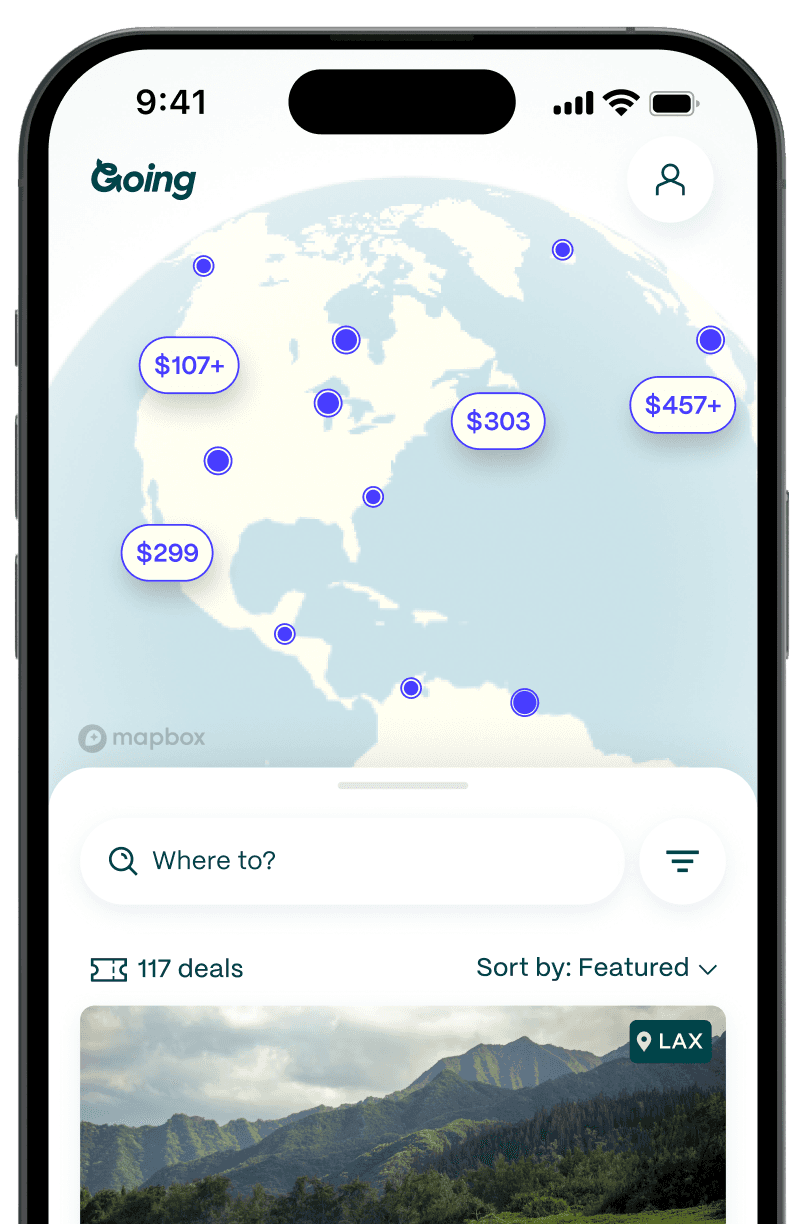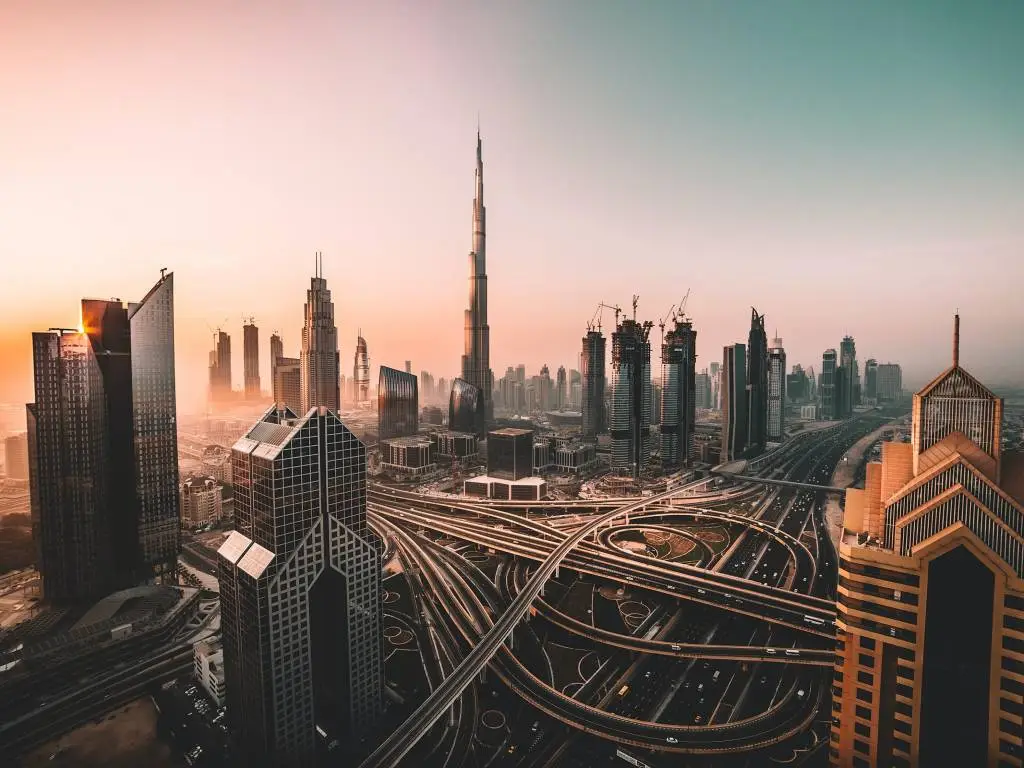
Dubai: The Record-Breaking City Built on Sand
A mirage in the desert

Though Dubai has been inhabited since around 2500 BC, the city didn’t exist as we know it today until the early 2000s. Thousands of years ago the UAE was all mangrove swamps and rolling desert, populated with nomadic tribes. Eventually, its proximity to Asia, the Middle East, and Africa made it a popular trade hub, but it wasn’t until the discovery of oil in the 1960s that things really began to pick up.
Today, it’s a sprawling, modern city with a skyline that includes some of the most recognized buildings in the world, as well as the tallest: the Burj Khalifa. Most of this development happened within the last couple of decades, and it happened fast.
People who lived in Dubai in the 90s say it was like watching something come from nothing; they even tell stories or getting lost on their way to work because things changed so quickly from one day to the next!
Watch this timelapse to see how rapidly the city rose, literally from the desert, where it shimmers in the hazy heat like a mirage of epic proportions.

Bigger, taller, longer, faster
If you’re in Dubai and wondering if something is the biggest, tallest, or longest, it probably is.
Dubai seems to love setting records. It’s home to the world’s tallest building, biggest mall by land area, biggest picture frame (which is also the world’s largest gold-plated picture frame), highest tennis court, fastest police car, longest driverless metro network, and tallest hotel. And it takes the title of world’s largest parking garage, indoor ski resort, sweets shop, and Ferris wheel (to be completed this year).
And it doesn’t stop at attractions. In June, the UAE conducted three million coronavirus tests, ranking it first globally in COVID-19 screening per capita. It was also the first country to have a hotel certified with a Safeguard label, meant to reassure travelers.
Where the antelope play

While many people associate the UAE with beautiful black dromedary camels and Peregrine falcon—two prized animals used for racing and show—the Arabian Oryx is actually the national animal.
The UAE is home to the largest herd of Arabian Oryx in the world. This (one of the country’s most recent records) is thanks to a conservation program that brought the oryx from “endangered” to “vulnerable” on the International Union for Conservation of Nature Red List of Threatened Species.
The oryx is a white antelope with distinctive straight horns, and some people believe the mythical unicorn is based on an oryx that lost one horn. The oryx live in the desert, along with gazelles and Arabian foxes.
Hot is an understatement
Dubai is hot year-round, but in the summer temperatures reach around 105° Fahrenheit most days. The UV index is typically 11–as high as it goes–and humidity hovers between 60-90%. That brings the “feels like” temperature to the 120°s almost every day, which is...hard to handle.
Residents spend a lot of money on A/C and resign themselves to life inside for a few months. While a few brave souls venture out for early morning or late night exercise, for the most part people stay indoors in summer months. Winter is when Dubai residents dine al fresco, go to the beach, run along the marina—and tell their friends and family to visit.
So. Much. Sand.

The Empty Quarter––spread across the UAE, Saudi Arabia, Yemen, and Oman––is the largest sand mass in the world at about 404,000 square miles. A drive out to the desert feels a world away from Dubai, with sloping red sand dunes as far as you can see. The vastness is both incredibly beautiful and a little eerie.
To catch a small glimpse of this immense desert on screen, look for its appearance as a setting in “Star Wars: The Force Awakens,” as the site of Machine City in the “Matrix” series, and as a test-site for alien weapons in “Men in Black: International.”
Let’s go to the mall
The Dubai Mall is a massive, sometimes overwhelming building. At 12 million square feet it’s about the size of 208 football fields and has more than 1,200 stores, 200 dining options, and a 244-room hotel. And it’s just one of nearly 70 luxury malls across the city.
Here, malls are more than shopping centers. They’re where you go to visit the aquarium or amusement park, have a nice dinner or meet friends for coffee, see a movie, ski, take an evening stroll with your family, visit the eye doctor or bank, and so much more.
This is mainly because it’s too hot to be outside for half the year, and malls provide a climate-controlled respite where you can spend hours without having to drive between locations or bear the heat. Malls draw tourists for shopping, but residents come for social life.
It’s a date

Dates from the Gulf are famous worldwide for their soft texture and sweet flavor. Dates were one of the first plants grown here, mainly because they’re one of the few things that can thrive in the desert. Bedouins ate the fruit, which is high in fiber and potassium and can last for months once dried, and used the palm stalks to build shelters. Today, date palms still take up most of the UAE’s cultivated land; there are more than 44 million date palms growing 199 different types of dates.
A few varieties stand out. Kholas, Barhi, Dabbas, Lulu, Fard, Khenaizi, and Sheesh are the most popular varieties in the UAE, but internationally, buyers prefer Ajwa and Medjool. Order online through Bateel, the UAE’s most well-known gourmet date supplier. They sell several varieties, including Kholas and Medjool, which both have delicate smooth skin and a velvety texture, and taste like a rich piece of caramel.
Pro tip: on a hot day, put a few plump dates in the freezer for an hour or so before eating. The chilled fruit is a real treat.
Eating around the world
Travelers looking for “authentic” Emirati food may find it a bit of a challenge. That’s because most of Dubai’s population is from India. Millions of Indian people migrated to Dubai starting in the 1960s, to work in oil and manufacturing. There are tons of hyper-regional Indian restaurants as well as great Nepalese, Pakistani, and other South Asian spots and fantastic Syrian and Lebanese food. When it comes to high-end dining, some of Dubai’s most famous restaurants are second locations of Michelin-starred British, American, and Italian chefs.
While Middle Eastern food from the UAE may be harder to find, it’s worth seeking out. One of the most famous dishes is Machbous, a rice dish with meat such as lamb and sweet spices like cinnamon and cardamom. Try it yourself with this recipe.
From fishing village to gold emporium

Dubai was originally established as a fishing village, and was a trade link between Mesopotamia and the Indus Valley. Back then, what is now Dubai was known for copper and pearls.
This historic part of the city, called Al Fahidi, sits miles north of Dubai’s glitzy downtown. Here, you’ll find the Al Fahidi Fort, the city’s oldest building built in 1781, and restored gypsum and coral buildings that recreate old homes and the market, called the Al Seef Market. There’s also a small Spice Souk.
Today, this part of the city is known for gold, which is very inexpensive because there are no import duties on raw materials and gold bars. And–surprise!–Dubai’s Gold Souk is the largest gold market in the world.
The traditional dress that tells a story

It’s rare to see an Emirati man in western clothes in the UAE; most still wear traditional dress, which is a source of pride, especially in work or formal settings. Each country in the Gulf has a similar but slightly different style of dress, so you can tell where people are from by what they wear.
Emirati men wear a kandura, a white ankle-length garment. The Emirati kandura is collarless, (which is how you can tell it apart from the Saudi Arabian version, called a thawb, for example). They also often wear a white ghutra headdress, a white square scarf folded to protect from the heat and kept in place with a black rope, or the shemagh, which is a red-and-white-checked version.
Women, like many in the Islamic world, wear the abaya, a top-to-bottom black garment. Some feature beautiful silks and colorful embroidered designs; there are even abayas made by Chanel and Dior. Not all women wear the abaya though. Some wear the hijab, which covers the neck and hair, and some wear western clothing.
The expectations for visitors are different, though it’s best to veer on the modest side, especially outside of touristy areas.
Islamic laws apply
Dubai is one of the safest cities in the world for tourists. Violent crime is basically nonexistent and people never worry about theft.
On the other hand, it’s a very unwelcoming place for LGBTQ+ travelers (“homosexual acts” are against the law) and it’s easy to get in a lot of trouble if you don’t know the rules. There are horror stories of tourists arrested for offenses they often weren’t aware they were committing and the punishments can be extreme.
For example, tourists need a liquor license to purchase alcohol at stores—and public intoxication is strictly illegal. It’s also against the law to post negatively about the government on social media.
On the surface, you can get away with more in Dubai than in some other Middle Eastern countries, but this is still an Islamic country, and certain laws and customs should be respected to ensure a worry-free trip.
Want more beachfront? Just build it

There are three man-made Palm Islands in the UAE, but Palm Jumeirah in Dubai is the most famous and built up. From above (as in, from any skyscraper in Dubai), it looks like a palm tree inside a circle. It’s packed with luxury hotels and apartments, malls, and beach clubs, which are extremely popular with residents.
Construction on the World Islands, 300 artificial islands in the shape of a world map, stopped in 2008 due to the global financial crisis. The exception is Lebanon, which has a small beach club. People like to say they’re “going to Lebanon” for the day when they visit.
While the creation of the islands added more coastline, it’s not all positive; the construction of the islands had a significant negative environmental impact on marine wildlife and vegetation.
The world’s most multicultural city?

Major economic growth over the last few decades brought an influx of foreign workers, and now Emiratis actually only make up about 11% of the population. The rest are expats, mostly from India, Pakistan, Bangladesh, the Philippines, and other South Asian countries, followed by expats from other Middle Eastern countries. Then there are the Westerners–mostly British and European, with a tiny percentage of Americans. So, while the official language is Arabic, English is more widely spoken, along with Hindi, Urdu, Tagalog, and Bengali.
Tourism is also big business, and visitors come from all over, especially the UK, China, Russia, and neighboring Gulf countries. The result: Dubai is truly an international city packed with multiple languages, customs, and cuisines.
Good to know
How to budget for a trip to Dubai
Dubai is fairly expensive, like any major city. While hotels range wildly in cost depending on the season, summer being the cheapest time to visit, the average cost per night for a two-person stay is about $200. There are more affordable hotels on the outskirts of the city and plenty of luxury hotels upwards of $500 per night. The average cost for a meal for two is about $60, but can be much higher at high-end restaurants or lower at shawarma stands or in Old Dubai. Alcohol is expensive in Dubai, with beers and wines marked up about triple from prices in the US.
Safety considerations
Dubai is one of the safest cities in the world for tourists. Violent crime is basically nonexistent and people never worry about theft. The biggest danger comes from not knowing or following the law. While not always applied in practice, Dubai has some very strict laws tourists are not always aware of. For example, couples cannot live together without being married, it is illegal to commit “homosexual acts,” to be publicly intoxicated, to use CBD, to import pork products, to express public displays of affection, to post negatively about the government on social media, to photograph people without permission, and more.
On the surface, you can get away with more in Dubai than in some other Middle Eastern countries, but this is still an Islamic country, and certain laws and customs should be respected to ensure a worry-free trip.
Weather in Dubai
Dubai is hot year-round, but in the summer temperatures reach around 105° Fahrenheit most days. The UV index is typically 11–as high as it goes–and humidity hovers between 60-90%. From December to March the temperatures hover in the high 70s-low 80s during the day, with low 60s at night.
When to visit Dubai
The most pleasant time to visit Dubai is between October and April, when it’s hot enough to enjoy a beach day but not unbearable. October and April are the hottest of those months, with temperatures in the 90s. Dubai is very popular with travelers from the UK in January, and with travelers from the rest of the Middle East during Eid holidays, which vary each year.
Money saving tips
Eat in North Dubai: near the historic district in North Dubai, you’ll find some of the city’s best and most affordable food. Dubai’s population is mostly Indian, and here you’ll find food stalls serving up dishes from across India, as well as Nepal, Pakistan, Iran, the Philippines and more, all for a fraction of the price downtown.
Visit the free beaches: Dubai has dozens of swanky beach clubs, but the water is just as clear at the free beaches, which also have ice cream and other food stands and full bathroom and shower facilities. Jumeirah Beach and Kite Beach are both long, free sandy beaches.
Ladies, listen up: Most bars in Dubai have a “ladies night,” where women drink for free. The night of the week and deal varies by bar (some charge a $5 fee for unlimited drinks, others have free entry but a cap of three drinks, and so on). This list breaks down deals by day of the week.
Join the Entertainer: If you’re planning to visit Dubai often or take an extended trip, it’s worth it to join the Entertainer, an app with deals on hotels, restaurants, spas, and more.
Public transportation options in Dubai
Geographically, Dubai is huge. From the airport in the north to the Marina neighborhood in the south is about 20 miles, and you’ll likely want to do things from north to south throughout your trip. Careem, an app similar to Lyft or Uber where you can call a taxi or private car, is the easiest transportation option. Taxis are cheaper than private cars, and both are safe. Rates are comparable with any major US city.
The metro is easy to navigate and extremely clean and safe. The main issue is that the routes are limited. That said, if you’re going from the marina to the Dubai Mall or downtown, it’s a straight shot and about $2.
Dubai is not a walkable city. Most neighborhoods are connected to each other by highways and large overpasses, so you almost always have to call a Careem or take the metro.
Dubai airports
Dubai’s huge Dubai International Airport (DXB) is not only the biggest airport in the UAE, it’s also the busiest in the entire world in terms of international passenger numbers. It’s just under three miles from Dubai. Dubai Airport is the main hub for Emirates Airline and also a hub for budget carrier flydubai.
>> Abu Dhabi International Airport, about an hour from Dubai, opened its Terminal A in November 2023. Read about its best features and the good news it means for travelers to the UAE.
How to get to Dubai from Dubai International Airport (DXB)
The subway system in Dubai has two stations at the airport on the Metro’s red line. Ticket costs depend on how far you’re traveling, but range from 5 AED to 7.5 AED. A taxi from the airport into the city typically takes a little more than 20 minutes with fares starting around 70 AED. (Taxis with pink trim are operated by female drivers and meant for female travelers.) Dubai’s rideshare options are Uber and Careem, the latter founded in Dubai, and the cost is similar to taxi fares.
Things to see, do, and eat in Dubai from Going

The top ten things to do in Dubai
- See the world from the top of the Burj Khalifa. Take an elevator 125 floors up to the top of the world’s tallest building, where you’ll have 360-degree views across the entire Emirate, from skyscrapers to rolling desert, and out into the Persian Gulf where man-made islands form palm trees and the shape of a world map.
- Watch the Dubai Fountain dance. The fountain outside of the Dubai Mall was modeled after the Bellagio fountain in Las Vegas. Water and light performances are held daily starting at 6pm, and run every half hour until 11pm. Go around twilight for the prettiest photos of the fountain and Burj Khalifa. If you miss the show, the Palm Fountain, the largest fountain in the world, also has shows from sunset until midnight.
- Shop ‘til you drop at the Dubai Mall. The largest mall in the world has everything: hundreds of stores, a massive aquarium with sharks, rays and other fish; dozens of restaurants, an arcade, movie theater, and more. Think of it as less of a shopping experience, more of a full-day event.
- Visit a Hammam. Dubai does luxury spas very well, including specialty treatments from around the world. One of the most popular treatments is a Turkish hammam experience, which includes a scrubdown, bath, and massage. The Talise Ottoman Spa’s tiled pool and hammam room are ridiculously beautiful and the treatment is top-notch. Plus, there are adventure showers, a snow room, and a salt water therapy pool, among other amenities for spa guests.
- Visit Palm Jumeirah. Spend a day on the man-made palm island, where you can shop and lounge at the beach by day, and visit a nightclub come sundown. At the tip of the Palm, you can visit the Atlantis hotel, which is themed like the lost city of Atlantis and has its own water park and aquarium.
- Step back in time in Old Dubai. The Al-Fahidi historic district in north Dubai has a small history museum; the Al Fahidi Fort, the city’s oldest building built in 1781; restored gypsum and coral buildings that recreate old homes and a handicraft market, called the Al Seef Market; and a small Spice Souk. Take an abra–a small, traditional boat–across the Dubai Creek (this costs 1 aed, about 25 cents)–to the Gold Souk.
- Visit the Gold Souk. Dubai’s gold market is the largest in the world and a fantastic place to buy jewelry. Gold here is very inexpensive because there are no import duties on raw materials and gold bars.
- Eat around the world Global Village. Like Dubai’s version of Epcot, Global Village showcases 90 countries across the world in one place. Visit different country pavilions for shopping, eating and live shows.
- Relax at a beach club. Much of Dubai’s shore is reserved for private beaches, but luckily, almost anyone can buy a day pass. Beach clubs access typically includes a lounge chair, a water bottle, a welcome drink and snack, a towel, and use of the showers/locker rooms. Check out ladies day deals or the Entertainer for discounted access on certain days.
- Spend an evening in JBR and the Marina. Dubai’s adjacent Marina and JBR districts are one of the few places you can walk in the city, so spend an evening strolling between the two, stopping at the many open-air bar and dining concepts and shops along the water.
Local picks for top attractions and activities in Dubai
- Dine out in JLT. The Jumeirah Lakes Towers neighborhood, more commonly called JLT, isn’t fancy and is a bit out of the way for tourists, but is where you’ll find locals eating on any given day of the week. Streetery Food Hall, Farsi Restaurant and Pitfire Pizza are a few favorites.
- Learn to surf. The Persian Gulf is calm and free of dangerous types of sharks, making it an ideal place to learn to surf. There are several places along Kite Beach offering lessons. Stand up paddle boarding and kayaking are also options.
- Camp in the desert. Locals are known to pack up the car, drive out into the desert and set up camp for a night. Al Qudra Lakes is the closest and easiest area to set up camp. It’s usually warm enough you don’t even need a tent, just some blankets to sleep under the stars.
- Spend an afternoon in Al Quoz. The Al Quoz industrial zone is Dubai’s hippest neighborhood, packed with warehouses repurposed into art galleries, eclectic boutiques and vegan cafes. On any given weekend you’ll find live music or some sort of pop-up event happening along Alskeral Avenue.
- Brunch all day. In Dubai, brunch is a big deal. It’s expensive, it’s unlimited, it’s always busy. Even if brunch isn’t your thing, it’s something of a right of passage for Dubai locals. Brunches range from elaborate (caviar and champagne) to more casual (jazz and pizza) but reservations should always be made in advance.
- Spend a night out in DIFC. It might seem odd to have the city’s best restaurants––many of them second locations from some of the world’s most famous chefs––in the same building as banks and consulting agencies, but that’s Dubai. Dubai’s International Financial Center (DIFC) glams up at night, when fashionistas dress to the nines to dine at Cipriani and Gaia, among other restaurants, and to dance at Indochine and Mantis.
What to eat and drink in Dubai
Like Dubai’s population, the food scene is international. You can find almost any type of cuisine here, though restaurants do skew toward fine-dining. Many famous chefs in London and New York have second or third branches of their restaurants here, for example. Still, there are more casual spots and food stands. Here are a few dining experiences that stand out:
- Bu Qtair–This fish spot next to Kite Beach serves fried fish or prawns in a signature curry sauce with rice. It’s one of the few Emirati restaurants in Dubai, as well as one of the best value. And the sauce is incredible!
- Lalezar–Housed in the Jumeirah Zabeel Saray hotel, this restaurant not only serves wonderful Turkish cuisine, but is also one of the prettiest restaurants in the UAE. The floral walls were hand-painted by Turkish art students to look like the interiors of Anatolian palaces.
- Arabian Tea House–There are multiple locations for this small chain serving traditional Arabic food like shawarma, hummus, and fattoush, but the one in Al Fahidi is the most charming.
- Yalla Saj–This unassuming spot in the food court in the Dubai mall serves some of the best shawarma in the city.
- Al Hallab–Also in the Dubai Mall, Al Hallab is a nice Lebanese restaurant with a patio that overlooks the Dubai fountain.
- Nobu–While you can dine at Nobu in 32 locations around the world, it’s still a classic Dubai spot to see and be seen while having a delicious meal. Be sure to dress up.
- Boca–In DIFC, this restaurant focuses on sustainable seafood and local produce, at least as far as that’s possible in the desert. It tries harder to be sustainable than other restaurants in Dubai, and has one of the more interesting wine lists in the city.
- Barasti–Barasti is a beach bar with a reputation. There’s almost always a party, day or night, and beers are fairly inexpensive compared to the rest of the city. There is standard bar food, but that’s secondary.
Where to stay in Dubai

Hotel prices in Dubai have a wide range depending on the season. In general, hotels in the historic district and near the airport are less expensive, while hotels downtown, in the Marina and on the Palm are more expensive. The average hotel cost is about $200, though luxury hotels can reach up to $1,000 per night and other hotels can cost closer to $100.
Airbnb is not as popular, but there are numerous lovely listings for Dubai, mostly in the $70-150 range.
Top Dubai neighborhoods for visitors
Marina: The Marina is expat central. It’s full of luxury high-rise buildings housing European and other expats, who spend their evenings walking along the marina, dining in the nearby restaurants, or hanging out in neighboring JBR, where they visit the beach, movie theater, and shops. Spend the day at the beach in JBR and the evening at one of the restaurants along the water.
Old Dubai: This neighborhood is where most of Dubai’s expats from South Asia live, and home to the city’s main historic attractions. Back in the 1970s, this was where Dubai as a city started. The rest was desert.
Downtown: Downtown is, like most downtowns, the hub of Dubai. Here you’ll find most office buildings, the Burj Khalifa, the Dubai Mall, luxury hotels, fine-dining restaurants, nightclubs, apartments, and on and on.
The Palm: While people do live on the Palm, this neighborhood is mostly popular for beach clubs and dining. The new Palm Fountain and several new malls have also made it more popular in the last year.
Recommended hotels in Dubai
- Jumeirah Naseem (~$400 per night) :Fashionable luxury along the water
- Hampton by Hilton Dubai Al Seef (~$45 per night): Hipster vibes at one of Dubai’s best prices
- XVA Art Hotel (~$65 per night): Boutique hotel outfitted by local designers in a historic building
- Taj Dubai (~$150 per night): Mixing business with pleasure in the financial district
- Palazzo Versace Dubai (~$300 per night): All out glam for a true Dubai experience
Day trips from Dubai
Dubai Desert Conservation Reserve–The UAE’s first national park is home to Arabian Oryx, which were endangered until recently, 120 bird species, antelopes, and more. It’s easiest to see on a tour. Platinum Heritage Desert Safaris does a great tour in vintage Land Rovers. The reserve is about 40 minutes from the city and most tour companies will pick you up from your hotel.
Hatta–Hatta is technically part of the Emirate of Dubai, but about 90 miles away. It’s the place to go for adventure activities such as zip lines, hiking and water sports. It also has a restored heritage village and fort, or you can simply relax in one of the lodges with views of the mountains.
Al Ain–About 85 miles from Dubai, Al Ain is home to the country’s first UNESCO World Heritage Site, the Al Ain Oasis. It is recognized for its early irrigation system. Today, visitors can walk through the oasis and admire date palms. There’s also a small date museum, a historic fort and the Jebel Hafeet mountain, which has a viewing area that overlooks the city.
Where else to go from Dubai
Abu Dhabi–The capital of the United Arab Emirates isn’t far from Dubai (about a 90-minute drive), but there’s so much to do you’ll want to spend the night. Visit the beautiful Sheikh Zayed Grand Mosque and the Louvre Abu Dhabi, and drive out to the Empty Quarter to see endless orange sand dunes. The Empty Quarter is particularly pretty at sunset.
Sharjah–About 90 minutes from Dubai, Sharjah has a well-preserved historic center with souks and food stands, the Sharjah Art Museum showcasing artists from around the Middle East, and the Museum of Islamic Civilization, which is packed with artifacts. Stay at the Al Bait hotel, a historic palace renovated with help from UNESCO.
Fujairah–This is where Dubai locals go to get away from it all. Fujairah is an Emirate along the water, marked by rugged cliffs and bright blue waters rather than skyscrapers. A day of snorkeling at Snoopy Island typically reveals sea turtles, coral, and plenty of colorful fish. Make sure to eat Dibba Bay oysters, the region’s local variety, while here.
See Going's deals on flights to Dubai, and join today to get cheap flights delivered right to your inbox.
More destinations in the Middle East:
Last updated August 30, 2024
